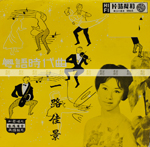In the time when Wong Jum-sum grew up, Cantonese pop music was but one of many kinds of music broadcast on radio. In a society where over 80% of the population spoke Cantonese, that came as a major surprise. Wong has a simple explanation for this. Cantonese pop grew out of traditional Cantonese music, but it could not build on the popularity of the latter in the face of severe competition. Compared to Western or Mandarin pop, it lagged behind in the areas of composition, lyrics, singing, accompaniment, recording, distribution, and marketing. Its competitors had a head start in talents, organization, and technology that took Cantonese pop more than a decade to come close.
Not everyone agrees with Wong’s diagnosis. Other scholars argue Canto pop, even in such early days, had a unique vibrancy that came from a healthy disregard of the boundaries among different traditions and genres, be they local or foreign. Early Canto pop laid a solid foundation for modern Canto pop, which went on to dominate not only Hong Kong but most Chinese communities around the world.
The story of Cantonese pop awaits careful re-writing.

In 1954, Wong Jum-sum followed maestro Leung Yat-chiu into the world of film music-making. The first film he was involved in was Malaya Love Affair. It was one of the many films shot in South-east Asia in those years, aiming largely for the region’s market. In music, the same situation applied. The year when Malaya Love Affair was shot, Fong Yim-fun’s song Belle of Penang was wildly popular, its lyrics openly praising the gorgeous beauty of Malaya.
In 1959, Wong was again helping to make film music, this time for The Pleasure of Youth. He was eighteen, and saw the then nineteen years old star Patricia Lam Fung in mesmerizing action. The latter was to star in further films on South-east Asia, most notably The scent of Durian, which continued the gentle breeze from the region.

























